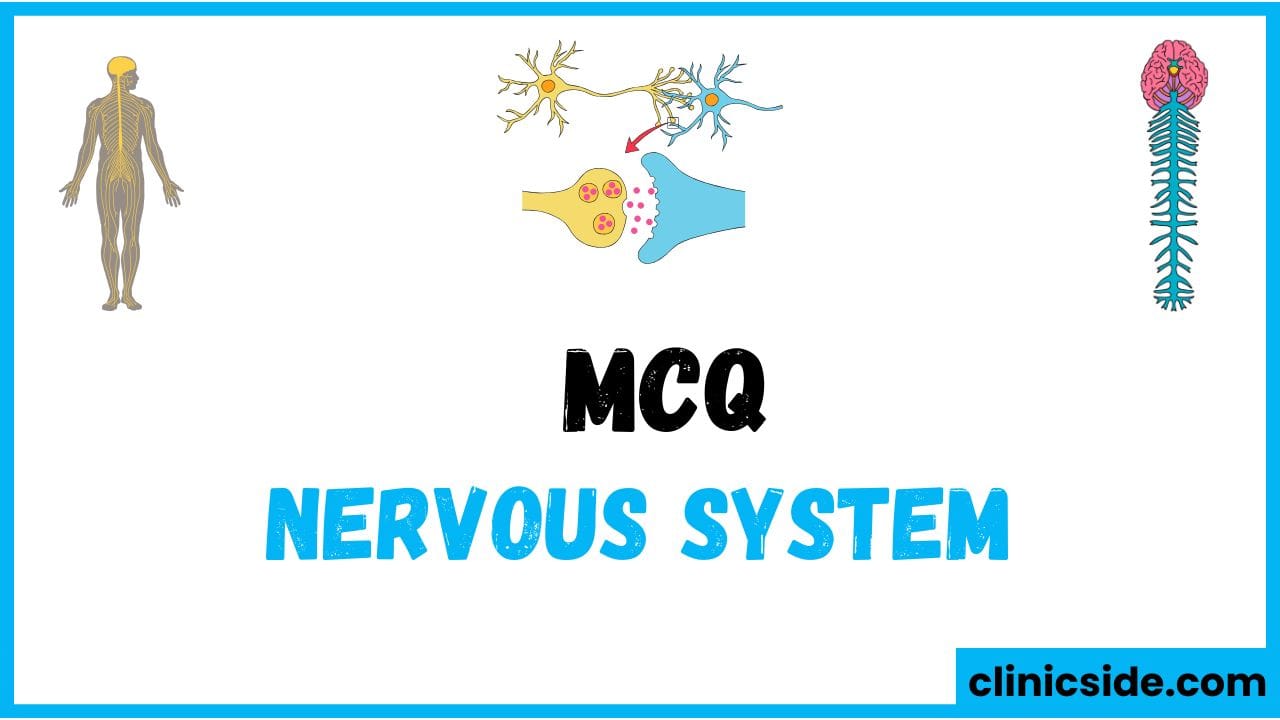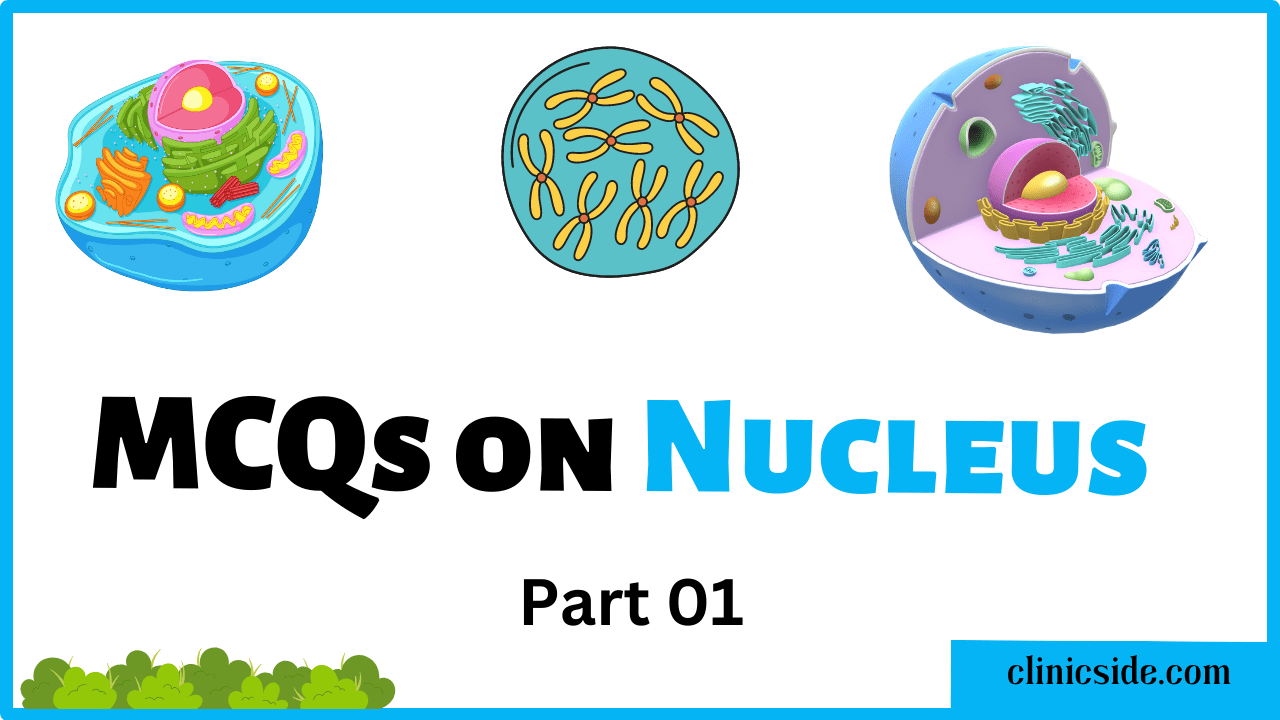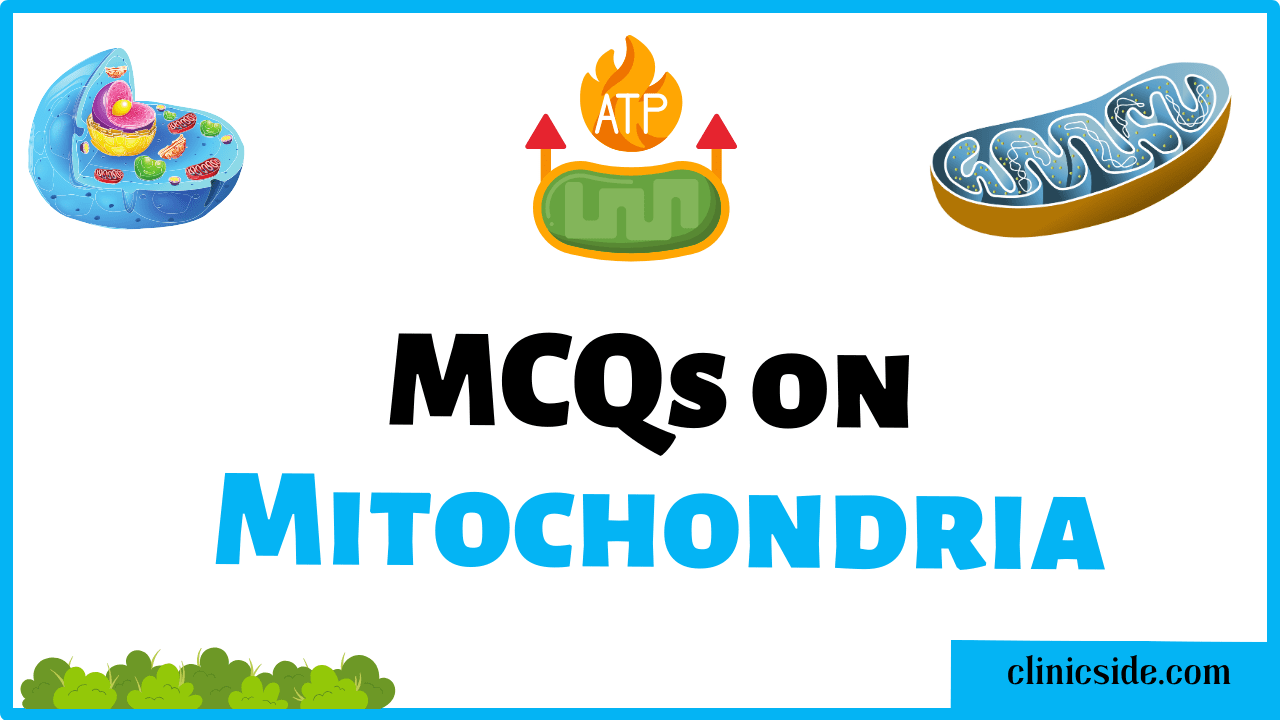Quiz
Available options: 1 to 20
Nervous System MCQs with Explanations
Introduction
The nervous system is essential for controlling and coordinating various body functions, such as movement, sensation, and vital processes. It consists of two main components:
- Central Nervous System (CNS): Comprises the brain and spinal cord, responsible for processing information and directing responses.
- Peripheral Nervous System (PNS): Connects the CNS to the rest of the body through sensory and motor pathways.
Specialized cells called neurons enable the transmission of signals across the nervous system. Additionally, the autonomic nervous system (ANS), a subdivision of the PNS, regulates involuntary activities such as heartbeat and digestion.
Key Concepts
- Neurons as the Fundamental Unit
Neurons are the basic functional units of the nervous system, designed to transmit signals. They consist of:- Dendrites: Receive signals from other neurons.
- Axons: Carry signals to other cells.
- Signal Transmission and the Role of Myelin Sheath
Neurons transmit signals as electrical impulses. The myelin sheath, a protective layer around axons, enhances the speed and efficiency of signal transmission. - CNS and PNS Functions
- CNS: Processes sensory information and directs motor responses.
- PNS: Links the CNS to organs and muscles, with sensory neurons carrying input and motor neurons transmitting output.
- Autonomic Nervous System (ANS)
The ANS manages involuntary functions, including breathing and digestion. It has two subdivisions:- Sympathetic Nervous System: Activates “fight or flight” responses.
- Parasympathetic Nervous System: Promotes “rest and digest” functions.
- Neurotransmitters and Synapses
Neurotransmitters are chemicals that facilitate communication between neurons at synapses (gaps between neurons). These play a crucial role in the functioning of the nervous system. - Brain Regions and Their Roles
The brain consists of specialized areas, each with specific functions:- Cerebrum: Governs decision-making, voluntary actions, and complex thought.
- Cerebellum: Maintains balance and coordinates movement.
- Brainstem: Controls fundamental processes like breathing and heart rate.
- Reflex Actions
Reflexes are quick, automatic responses to stimuli that protect the body from harm. The spinal cord often manages reflex actions, bypassing the brain for faster responses.
MCQs Overview
This collection of multiple-choice questions covers essential topics, including neuron structure, brain functions, and the autonomic nervous system’s role. Each question offers four options, with one correct answer explained for better understanding.






This post is a breath of fresh air!